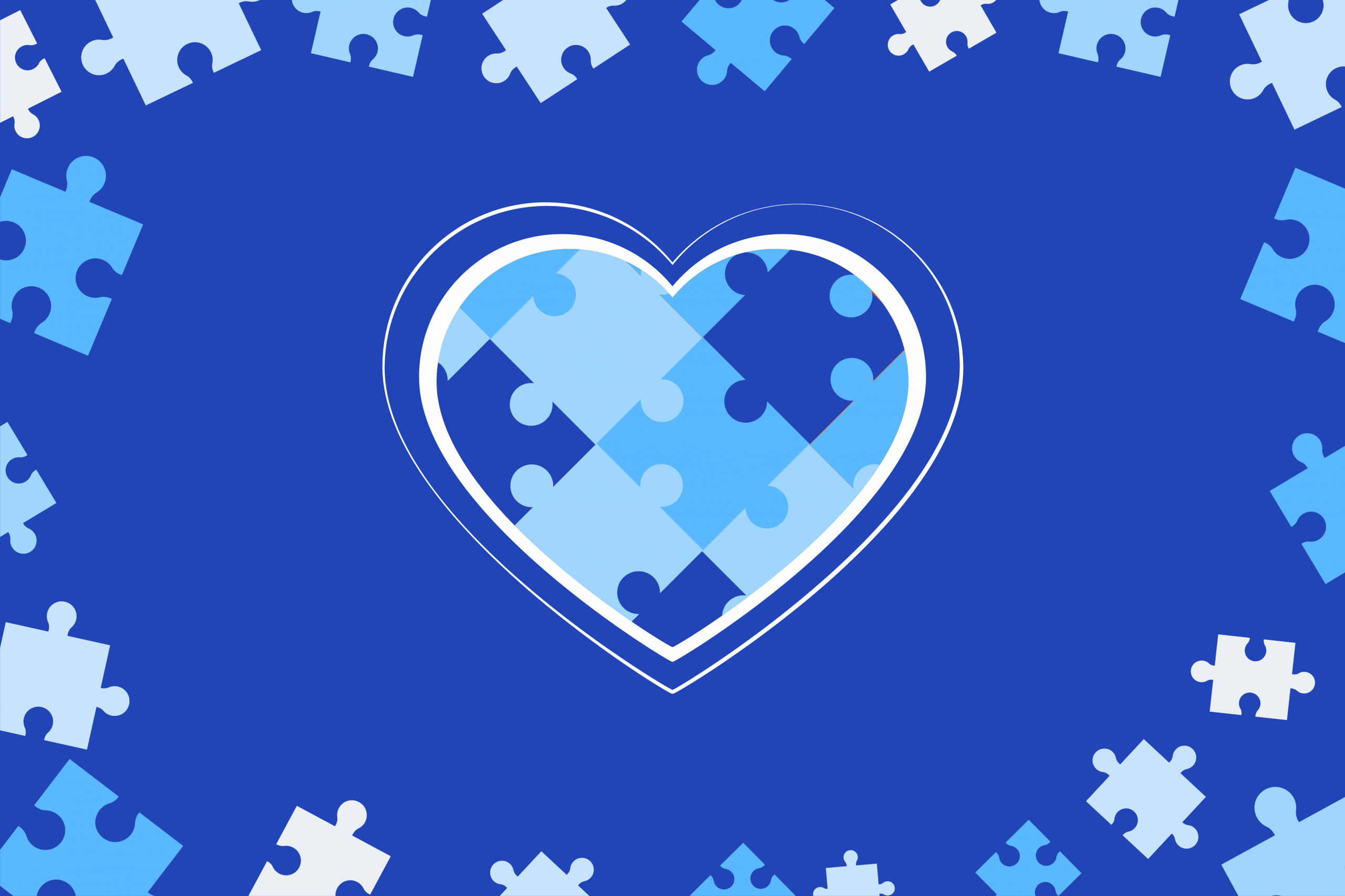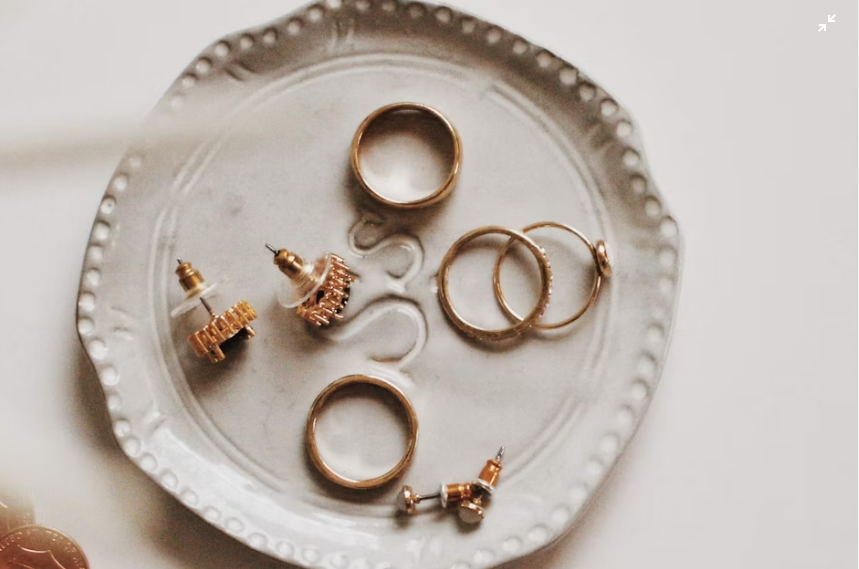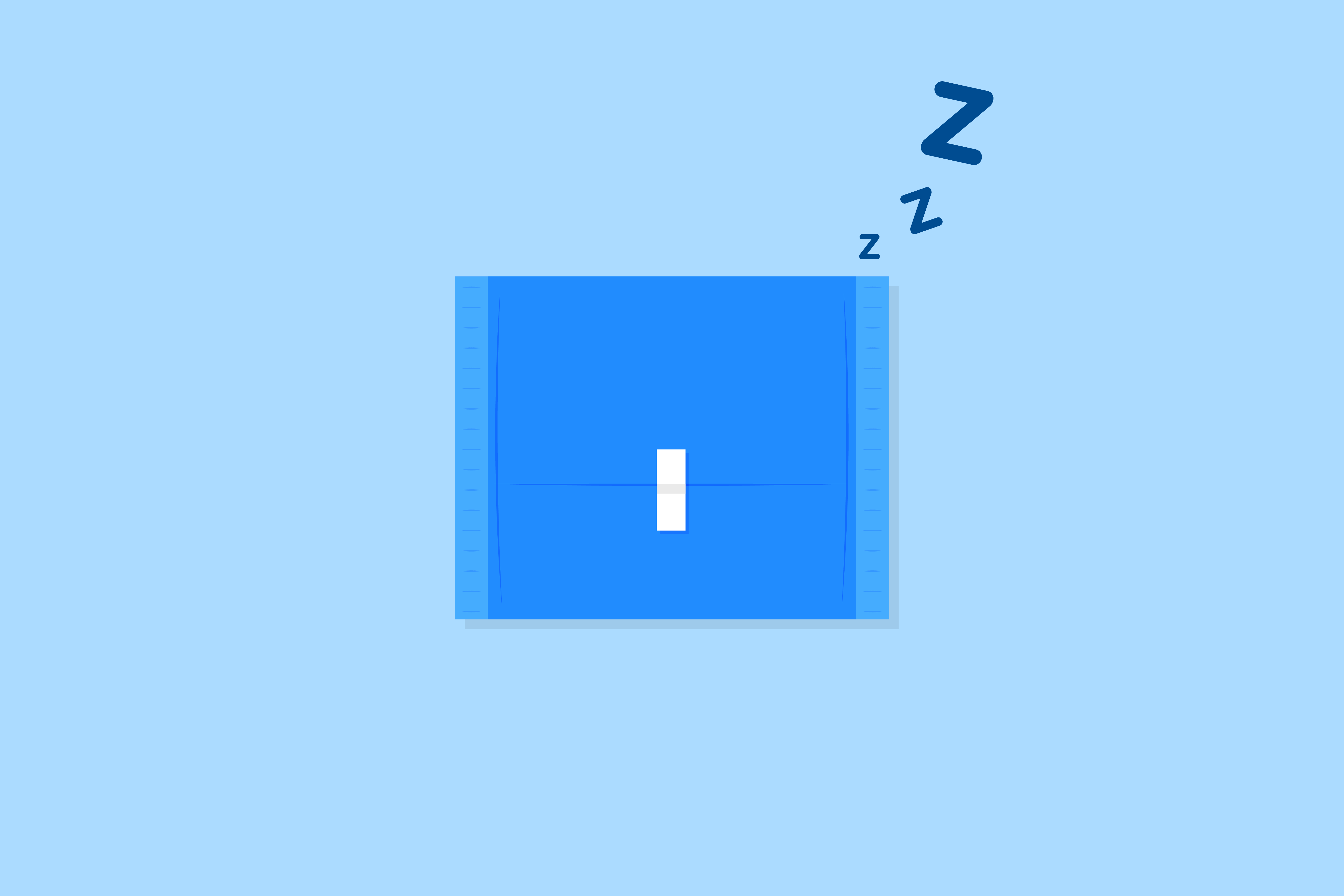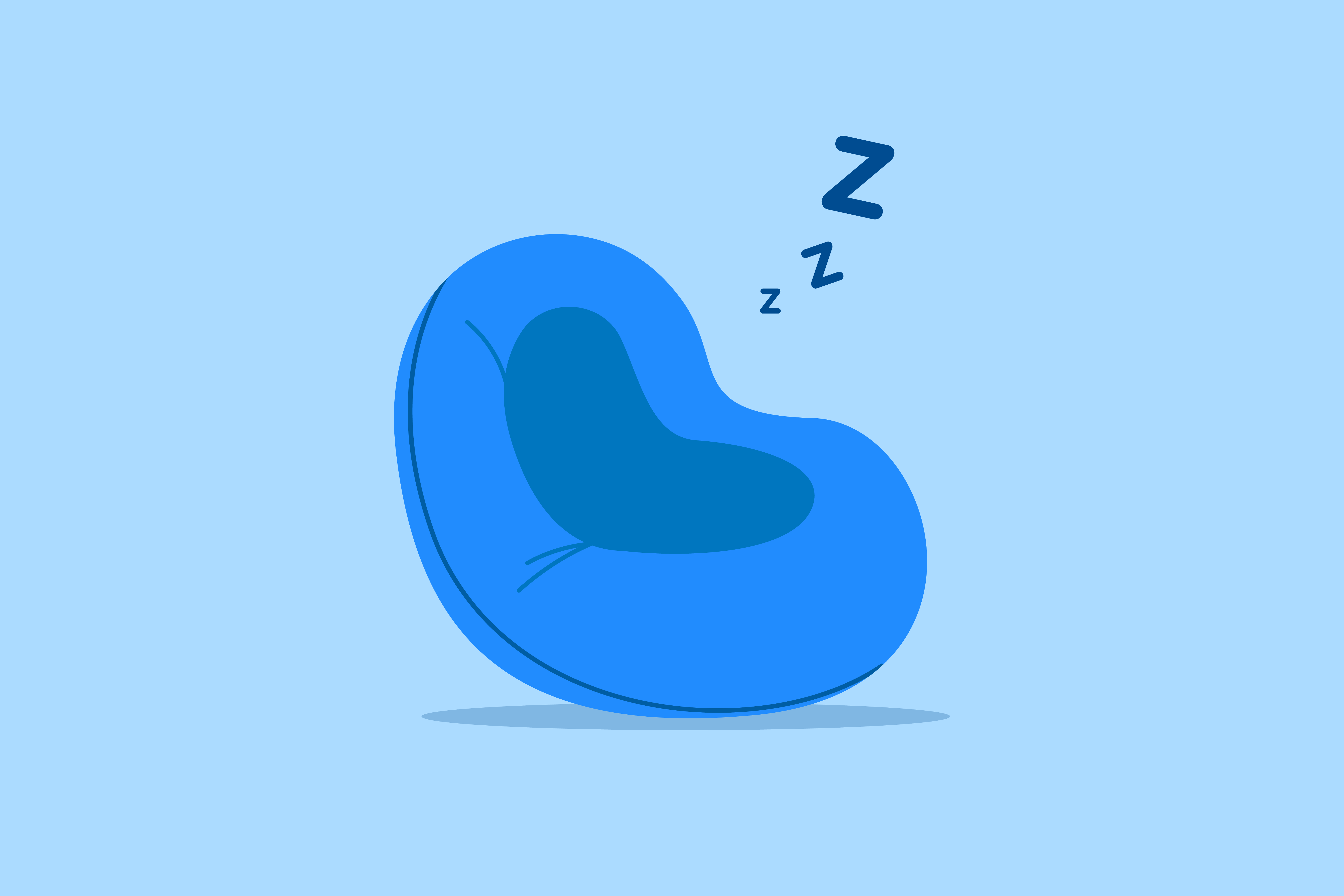Key Takeaways
- Prevalence of Sleep Problems: Over half of autistic children, and potentially up to four out of five, experience one or more persistent sleep disorders. These sleep difficulties are more common in children with autism spectrum disorder (ASD) than in typically developing children.
- Impact on Daily Functioning: Sleep problems in individuals with autism can have significant consequences on their daily functioning. Children with ASD who experience sleep troubles may exhibit more severe behavioral and learning impairments, including social issues, obsessive routines, and attention deficits. Sleep deprivation has also been linked to behavioral problems, depression, and anxiety in this population.
- Potential ASD Treatments: Treatment strategies for improving sleep hygiene in individuals with autism include creating a comfortable sleep environment, establishing consistent bedtime routines, maintaining a regular sleep-wake schedule, and addressing any underlying medical or psychological conditions.
Over half of autistic children, and as many as four out of five, may have one or more persistent sleep disorders. You are not alone if your autistic child has difficulty falling asleep or staying asleep.
These difficulties can be severe, posing significant obstacles for parents’ and autistic persons’ bedtime routines. Some techniques are available to assist those with autism spectrum disorder with sleep problems. However, these interventions are not always practical.
Many children with autism spectrum disorder have trouble falling asleep and staying asleep throughout the night. These sleep problems exacerbate behavioral disorders, impede learning, and reduce the general quality of life.
Autism-Related Sleep Disturbances in Children and Adults
Children with autism sleep up to roughly 40 minutes less Verified Source National Library of Medicine (NIH) World’s largest medical library, making biomedical data and information more accessible. View source every night and take about ten minutes longer to fall asleep than typically developing children. Sleep problems are more common in children with autism spectrum disorder than in typically developing children.
One research study Verified Source National Library of Medicine (NIH) World’s largest medical library, making biomedical data and information more accessible. View source found the following sleep problems in autistic children:
- 54% were opposed to going to bed
- 56% were sleep deprived
- Parasomnias, such as sleepwalking or night terrors, affected 53% of the population
- 25% had sleep breathing problems, including sleep apnea
- 45% had difficulties getting up in the morning, while 31% slept during the day
Relationship Between Autism and Sleep Disorders
According to an article on the Scientific American website, “At least half of autistic children have difficulty falling or staying asleep, and parent surveys indicate that the percentage may be higher than 80%. The results for young adults range from 1 to 16 percent.”
Research done at the University of Pennsylvania’s Center for Sleep and Circadian Neurobiology discovered that sleep troubles for children with autism result in considerably more severe behavioral and learning impairments throughout the day. Children who slept for fewer hours experienced more severe social issues, particularly in peer connections.
Those children also had more obsessive routines. This was true even when researchers considered age and IQ. Sleep deprivation has been associated with increased challenging behavior, attention deficit disorder, depression, and obsessive-compulsive disorder.
Another 2016 study found Verified Source National Library of Medicine (NIH) World’s largest medical library, making biomedical data and information more accessible. View source that sleep disruption is linked to behavioral dysregulation in children with an autism spectrum disorder.Even after adjusting for age and gender, sleep problems exhibited the most consistently high connection with daytime behavior difficulties.
Sleep problems do not go away as autistic children get older but may improve. Adults with autism may have more difficulty than neurotypical adults with concerns including insomnia Verified Source National Library of Medicine (NIH) World’s largest medical library, making biomedical data and information more accessible. View source and sleepwalking. Even when autistic adults sleep through the night, research shows that their sleep is less restful than that of their neurotypical friends.
What Causes Autism Spectrum Sleep Disorders in Children?
The origins of poor sleep in people with autism spectrum disorders, like many other autism symptoms, are unknown.
Among the plausible (but unverified) theories are:
- Genetics: The genetic roots of autism in an individual may influence their ability to go to sleep, stay asleep, and wake up refreshed.
- Sensory issues: Most autistic persons are hypersensitive Verified Source National Library of Medicine (NIH) World’s largest medical library, making biomedical data and information more accessible. View source to sensory input; they may have difficulty sleeping because they can’t effectively tune out noises and feelings that disrupt their sleep.
- Melatonin deficiency: According to research, individuals with autism generate less melatonin Verified Source National Library of Medicine (NIH) World’s largest medical library, making biomedical data and information more accessible. View source (a sleep-related hormone Verified Source National Library of Medicine (NIH) World’s largest medical library, making biomedical data and information more accessible. View source ) at night than neurotypical people.
- Acid reflux, Verified Source National Library of Medicine (NIH) World’s largest medical library, making biomedical data and information more accessible. View source , seizure disorders, Verified Source National Library of Medicine (NIH) World’s largest medical library, making biomedical data and information more accessible. View source obsessive-compulsive disorder Verified Source National Library of Medicine (NIH) World’s largest medical library, making biomedical data and information more accessible. View source ADHD Verified Source National Library of Medicine (NIH) World’s largest medical library, making biomedical data and information more accessible. View source and anxiety Verified Source National Library of Medicine (NIH) World’s largest medical library, making biomedical data and information more accessible. View source are just a few of the medical and mental diseases that many individuals with autism experience that can make it difficult to sleep.
Aside from these potential explanations, people with autism may find it more challenging to let go of the day’s concerns and interests.
Pediatrician Dr. Nilong Vyas explains, “Children with Autism Spectrum Disorder can have a multitude of sleep difficulties which can make behavioral and social components of the disorder more challenging for parents to navigate. Keeping a sleep log may prove promising so that specific sleep inconsistencies can be identified. Showing that log to the child’s pediatrician or sleep coach will allow a plan of action to be implemented.”
“Prioritizing sleep for children with ASD and pushing for an earlier bedtime may help diminish multiple overnight wakeups. In addition, having a consistent bedtime routine will facilitate improved overall sleep. The main takeaway is not to suffer alone if your child with ASD is experiencing sleep difficulties. Reach out to a pediatric sleep coach such as Sleepless in NOLA, that specializes in helping families with Autism.”
Sleep Issues of Autism Patients
Sleep-Onset Insomnia
Sleep-onset insomnia Verified Source National Library of Medicine (NIH) World’s largest medical library, making biomedical data and information more accessible. View source is characterized by trouble falling asleep. Children with autism are more likely than their typically developing classmates to experience sleeplessness. People with autism spectrum disorders are also more prone to suffer from anxiety or sadness, which are associated with wakefulness.Sleep Apnea
Sleep apnea is Verified Source National Library of Medicine (NIH) World’s largest medical library, making biomedical data and information more accessible. View source a type of sleep-disordered breathing in which the person stops breathing during sleep for a few seconds. Obstructive sleep apnea Verified Source Medline Plus Online resource offered by the National Library of Medicine and part of the National Institutes of Health. View source (OSA) is caused by obstructed airways, which reduces blood oxygen levels. Individuals with OSA have less peaceful sleep since apnea episodes wake them up.The signs of and causes for obstructive sleep apnea in children can vary from how OSA presents itself in adults, so parents who detect signs of sleep apnea in their child with ASD should speak with a pediatrician.
You should be concerned about why your child is snoring if it is loud, frequent, and accompanied by other symptoms. Snoring can be a normal occurrence in children, especially when they have a cold or allergies. However, if the snoring persists even when your child is healthy, it may be an underlying issue like obstructive sleep apnea.
Additional signs to watch for include pauses in breathing, restless sleep, daytime sleepiness, bedwetting, and behavioral problems. Solutions such as removing enlarged tonsils, a common surgery for sleep apnea, may alleviate a child’s symptoms.
See also our guide to sleep apnea vs allergies.
Sleepwalking
Sleepwalking episodes are more common during deep sleep in the early half of nighttime. Sleepwalkers are also more prone to have nightmares or night terrors, which are unexpected rousings during the first half of a child’s sleep accompanied by perspiration, high heart rate, panic, and bewilderment.
Rhythmic Movement Disorder
Rhythmic movement disorder is 15-minute or fewer rhythmic head or body shaking episodes that occur when the person falls asleep or shortly after.
Restless Leg Syndrome
Restless leg syndrome (RLS) is characterized by an uncontrolled need to move the lower limbs to alleviate a tingling feeling when falling asleep. Women are more likely than males to suffer from RLS, which can complicate sleeping with restless leg syndrome.
Bedwetting
Bedwetting is a common enough childhood concern, and many parents may want to use a waterproof mattress protector in case of accidents. However, while bedwetting Verified Source Medline Plus Online resource offered by the National Library of Medicine and part of the National Institutes of Health. View source (nocturnal enuresis) is expected in early infancy, it is significantly more likely in children with ASD than in their generally developing siblings.
Hypersomnia
The reverse of insomnia, hypersomnia, Verified Source National Library of Medicine (NIH) World’s largest medical library, making biomedical data and information more accessible. View source is defined as excessive sleep of 10 hours or more that is not rejuvenating and leaves the individual tired during the day.
Hypersomnia can affect how focused individuals feel throughout their day, as even after oversleeping or napping, they may still feel groggy.
Other Medical Concerns
Aside from the sleep difficulties mentioned above, children with autism spectrum disorders are more likely to develop seizures Verified Source Medline Plus Online resource offered by the National Library of Medicine and part of the National Institutes of Health. View source or gastrointestinal problems, Verified Source Medline Plus Online resource offered by the National Library of Medicine and part of the National Institutes of Health. View source which can interrupt sleep.
Also, co-morbid conditions like OCD can affect sleep with intrusive thoughts and anxiety, along with how these things affect a youngster’s behavior during the day. Addressing multiple mental conditions can complicate treatment, and it’s often best to coordinate a multi-pronged strategy with a doctor.
Unfortunately, autistic children are more intense than ordinarily developing youngsters when they experience sleep problems. According to new studies, Verified Source National Library of Medicine (NIH) World’s largest medical library, making biomedical data and information more accessible. View source low sleep duration is substantially connected with social impairment, particularly the capacity to build peer connections. Sleep-deprived children with ASD have lower IQ scores. They are more likely to engage in repetitive behaviors and obsessive routines. They also have an increased incidence of behavioral problems, depression or anxiety, and difficulty paying attention in school.
Developing Good Sleep Hygiene
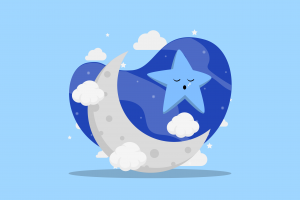 It is critical to treat any medical or psychological conditions that may interfere with sleep. For example, if your child’s medications interfere with his sleep, they may need to be adjusted. If your child has a sleep issue such as sleepwalking, night terrors, or restless legs syndrome, he may need to see a sleep expert. Some youngsters will require further behavioral or pharmacological treatment to enhance their sleep.
It is critical to treat any medical or psychological conditions that may interfere with sleep. For example, if your child’s medications interfere with his sleep, they may need to be adjusted. If your child has a sleep issue such as sleepwalking, night terrors, or restless legs syndrome, he may need to see a sleep expert. Some youngsters will require further behavioral or pharmacological treatment to enhance their sleep.
Although sleep issues are prevalent in children with ASD, they are frequently treatable. Better sleep for these youngsters may enhance their daily functioning and family members’ sleep.
There are some lifestyle changes parents can do to help their children sleep better. An excellent starting step is establishing good sleep hygiene by addressing the following when establishing a bedtime routine.
Environment
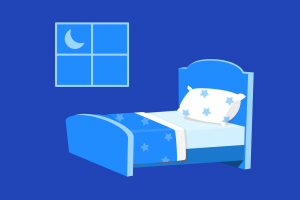 The sleeping environment should be dark, quiet, and cool. Because children with ASD may be more sensitive to sounds or have sensory difficulties, their environment should be modified to ensure comfort. Older children can even give input on what can help them relax at night.
The sleeping environment should be dark, quiet, and cool. Because children with ASD may be more sensitive to sounds or have sensory difficulties, their environment should be modified to ensure comfort. Older children can even give input on what can help them relax at night.
Perhaps the most important element is having one of the best mattresses for kids, with sheets, blankets, and pillows that feel gentle on sensitive skin.
Some children may also want to sleep with a stuffed animal for comfort.
We have a number of guides that discuss how to optimize a bedroom for better sleep:
- Best and Worst Bedroom Colors for Sleep
- How a Tech-Free Bedroom Creates Smarter Sleep
- Experts Share Tips for a Calm, Clutter-Free Bedroom
- Best Plants for Your Bedroom
Bedtime Routine
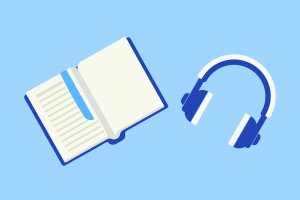 The bedtime routine should be consistent, brief (20-30 minutes), and include relaxing activities such as taking a warm bath, reading or listening to soft music. Some children may enjoy a glass of warm milk or even a mug of herbal tea as a way to signal to their brains it’s time to sleep.
The bedtime routine should be consistent, brief (20-30 minutes), and include relaxing activities such as taking a warm bath, reading or listening to soft music. Some children may enjoy a glass of warm milk or even a mug of herbal tea as a way to signal to their brains it’s time to sleep.
Avoid using devices near bedtime, such as TV, computer, video games, and so on, which can be stimulating and make it harder for your youngster to fall asleep. We recommend shutting off devices at least an hour before bedtime.
Sleep-Wake Schedule
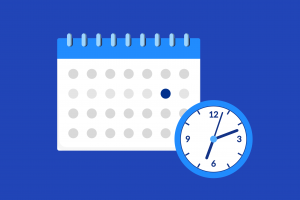 The sleep schedule should be consistent, with slight variance between weekday and weekend schedules. Sleeping in on days with no school can make it harder for a child to fall back into their routine for school days, which is why a summer sleep routine when kids are out of school is so important.
The sleep schedule should be consistent, with slight variance between weekday and weekend schedules. Sleeping in on days with no school can make it harder for a child to fall back into their routine for school days, which is why a summer sleep routine when kids are out of school is so important.
Fixing a sleep schedule can mean a few tired days, but many find themselves quickly adjusting and feeling sleepy at bedtime.
Teach Your Child to Sleep Alone
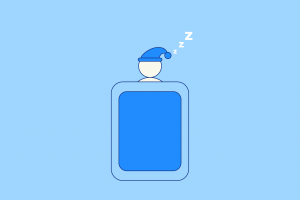 Your youngster must learn to sleep without the presence of a parent. All children and adults wake momentarily throughout the night but rapidly return to sleep by reestablishing bedtime connections.
Your youngster must learn to sleep without the presence of a parent. All children and adults wake momentarily throughout the night but rapidly return to sleep by reestablishing bedtime connections.
So, suppose your child needs the presence of a parent to fall asleep at bedtime. In that case, he may require the assistance of a parent to go back asleep during routine awakenings.
Arrange a Nap Time
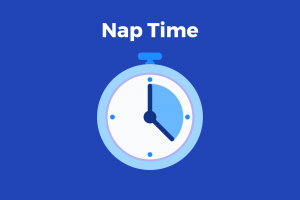 Toddlers and infants are the ones most likely to nap during the day, with the need to nap decreasing as children mature and age. See our guide to how infant sleep patterns change for more information.
Toddlers and infants are the ones most likely to nap during the day, with the need to nap decreasing as children mature and age. See our guide to how infant sleep patterns change for more information.
Preschool children can still benefit from naps, but they should not be taken too late in the afternoon since they can interfere with sleep. Avoid long and late afternoon naps for children over the age of five.
Improving Daily Routines
Some sleep issues are caused by poor food habits and a lack of physical exercise during the day. You may be able to solve these issues by adopting a few easy lifestyle modifications. Encourage your youngster to do the following.
Exercise
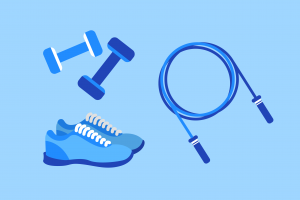 Daytime activity can help children fall asleep more efficiently, and children who exercise tend to sleep deeper. Allowing your youngster to exercise too close to bedtime may cause him difficulty falling asleep.
Daytime activity can help children fall asleep more efficiently, and children who exercise tend to sleep deeper. Allowing your youngster to exercise too close to bedtime may cause him difficulty falling asleep.
However, it’s still good to increase their physical activity. Parents should try to aim for several hours daily, including at least one hour of vigorous play, such as running and leaping. Even moderate exercise can improve sleep.
Reduce Caffeine Intake
 Avoid caffeine, especially close to bedtime, since it can be stimulating and make it harder for your kid to go asleep. Caffeine may be present in tea, cocoa, certain drinks, and coffee. Even decaffeinated teas and such still contain trace amounts of caffeine.
Avoid caffeine, especially close to bedtime, since it can be stimulating and make it harder for your kid to go asleep. Caffeine may be present in tea, cocoa, certain drinks, and coffee. Even decaffeinated teas and such still contain trace amounts of caffeine.
Along with caffeine, avoid sugar and increased excitement in the evenings.
Dinnertime
 Give them their evening meal at an appropriate time so they are capable of falling asleep without being hungry. You may also want to research sleep-inducing dinners vs foods likely to promote wakefulness.
Give them their evening meal at an appropriate time so they are capable of falling asleep without being hungry. You may also want to research sleep-inducing dinners vs foods likely to promote wakefulness.
Why Are Children with ASD More Likely to Have Sleep Issues?
While scientists are still unsure why children with autism are more likely to have sleep disorders and other sleep-related problems, they have proposed a few possibilities.
Difficulty Interpreting Social Cues
Autistic children struggle to read social signs and may have communication issues Verified Source National Library of Medicine (NIH) World’s largest medical library, making biomedical data and information more accessible. View source . As a result, kids may misinterpret their siblings, parents, or other family members’ actions as they prepare to fall asleep. Aside from our circadian cycles, social signals assist us in realizing when it’s time to sleep, especially throughout childhood.
Increased Sensitivity
Because autistic children have heightened sensitivity Verified Source National Library of Medicine (NIH) World’s largest medical library, making biomedical data and information more accessible. View source , it might be more difficult for their brains to quiet down enough to sleep. Furthermore, kids are more likely to be awakened throughout the night by external stimuli, such as a snoring family member or a parent opening a door elsewhere in the home.
Development Problems
Typically, growing children sleep throughout the day and wake up to feed during infancy and toddlerhood. Children continue to nap as they grow older but sleep less during the day and more at night until they finally sleep only at night. Young children with autism may not acquire mature sleep habits at the same rate as their classmates, causing them to wake up more frequently at night and be fatigued throughout the day.
Genetic Deviations
Children with autism may spend 8-10% less time in REM sleep, the vitally restorative period of rest during which the brain absorbs memories and learnings from the day. Reduced REM sleep has been shown to negatively influence autistic children’s cognitive function in school and impede their growth.
Researchers believe that neurotransmitter imbalances in the brain are to blame for the decreased REM sleep. They’re also examining whether a single genetic mutation may cause sleeplessness as a symptom in autism.
About the author
Eric Ridenour is a health and wellness writer with a strong focus on sleep and nutrition. With a background in health science and psychology, Eric has a deep understanding of the connection between sleep and overall well-being. His expertise has been sought by various businesses and individuals, and his work has been featured in reputable publications such as Thrive Global, Drug Report, and Authority Magazine. Eric's commitment to promoting better sleep and comprehensive wellness is evident in his writing and consultations. He is a published author working on his second book.
View all posts